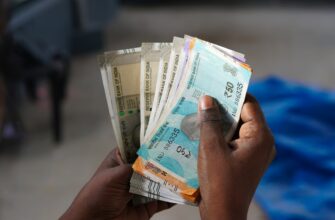- What is a Bitcoin Airdrop?
- Why Do Projects Run BTC Airdrops?
- Step-by-Step Guide to Claiming Your First BTC Airdrop
- Essential Tools for BTC Airdrop Hunters
- Critical Safety Tips: Avoiding Airdrop Scams
- Frequently Asked Questions (FAQ)
- Do I need to pay taxes on BTC airdrops?
- Can I receive airdrops on Coinbase or Binance?
- How do I know if I’m eligible for an airdrop?
- What if I miss an airdrop?
- Are airdropped tokens valuable?
- Can airdrops compromise my wallet security?
What is a Bitcoin Airdrop?
A Bitcoin airdrop is a marketing strategy where free cryptocurrency tokens or coins are distributed to existing wallet holders. Think of it as a surprise gift from blockchain projects to promote adoption. Unlike forks (which create new blockchains), airdrops simply send tokens to your existing BTC address based on specific criteria like holding a minimum balance or completing simple tasks.
Why Do Projects Run BTC Airdrops?
Projects use airdrops to:
- Boost awareness – Attract new users to their platform.
- Reward loyalty – Incentivize long-term Bitcoin holders.
- Decentralize distribution – Spread tokens widely to avoid centralization.
- Test networks – Distribute tokens during testnet phases for feedback.
Step-by-Step Guide to Claiming Your First BTC Airdrop
- Set Up a Secure Wallet: Use non-custodial wallets like Exodus, Trust Wallet, or hardware wallets (Ledger/Trezor). Avoid exchange wallets – most airdrops require private key access.
- Hold Bitcoin in Your Wallet: Transfer BTC to your wallet. Some airdrops require minimum holdings (e.g., 0.01 BTC) at a specific “snapshot” date.
- Research Legitimate Airdrops: Follow trusted crypto news sites (CoinDesk, Cointelegraph) and project social media (Twitter, Telegram). Verify announcements on official project websites.
- Complete Required Tasks: Tasks may include:
- Joining Telegram/Discord communities
- Retweeting posts
- Signing up for newsletters
- Provide Your Public Address: Submit your BTC wallet address via the project’s portal. Never share private keys!
- Wait for Distribution: Tokens arrive automatically after the snapshot date. Processing can take days or weeks.
Essential Tools for BTC Airdrop Hunters
- Block Explorer: Track transactions on your address (e.g., Blockchain.com).
- Airdrop Aggregators: Sites like AirdropAlert.com filter scams and list vetted opportunities.
- Separate Wallet: Dedicate one wallet exclusively for airdrops to minimize security risks.
- Bookmarks: Save official project links to avoid phishing sites.
Critical Safety Tips: Avoiding Airdrop Scams
- Never pay to participate: Legitimate airdrops are free.
- Ignore DMs: Scammers impersonate admins in Telegram/Discord. Official teams won’t message you first.
- Verify URLs: Check for HTTPS and correct spelling (e.g., “bitc0in.org” is fake).
- Use 2FA: Enable two-factor authentication on all crypto accounts.
- Research thoroughly: If an airdrop seems too good to be true, it probably is.
Frequently Asked Questions (FAQ)
Do I need to pay taxes on BTC airdrops?
Yes, in most countries. Airdrops are considered taxable income at their fair market value when received. Consult a tax professional.
Can I receive airdrops on Coinbase or Binance?
Rarely. Exchanges often don’t support airdrops. Use a private wallet for eligibility.
How do I know if I’m eligible for an airdrop?
Check the project’s official announcement for criteria like minimum BTC balance or snapshot dates. Block explorers can verify your holdings at specific times.
What if I miss an airdrop?
New opportunities arise weekly. Focus on upcoming projects rather than expired ones.
Are airdropped tokens valuable?
Some become highly valuable (e.g., Uniswap’s UNI airdrop), but many have little worth. Research the project’s utility before investing time.
Can airdrops compromise my wallet security?
Only if you share private keys or interact with malicious smart contracts. Legitimate airdrops require no sensitive data beyond your public address.








